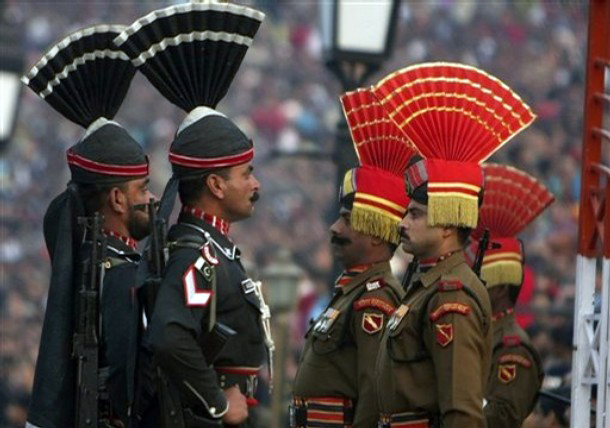Hurry up and wait! This seems to be the order of the day as Pakistan and India take tentative steps towards normalcy.
After much trumpeting of the visa accord signed in Islamabad after External Affairs Minister S.M. Krishna’s visit and discussions with Pakistan’s Foreign Minister Hina Rabbani Khar, the maw of the bureaucracy appears to have swallowed the agreement and refuses to release it. The latest out of Islamabad is that the Cabinet still has to approve the agreement. Surely, the paperwork for such an approval must have been readied before the accord was signed.
Conspiracy theorists will have a field day as to the cause of the delay. Even the often-blamed Pakistan military favours ending the “no-war no-peace” situation with India, so it can concentrate on the domestic threat of militancy. Meanwhile, people who wish to travel from both sides of this fractious border remain in suspended animation. Overseas consulates of both countries have yet to receive orders to ease up on restrictions. Not that the new accord represents a radical leap forward. It is marginal at best and it appears rather than simplifying the visa regime, officials decided to make a dog’s breakfast out of it, creating new categories and slicing and dicing the different visas so they will keep the “babus” occupied. Despite these hurdles, bravo to those officials who keep issuing visas, often at short notice, on their own recognisance. And bravo to the home ministries that have not taken them to task for their transgressions.
On a recent visit to Pakistan and India, I was struck by the hundreds of Indian visitors to Lahore under the aegis of Aman-ki-Asha for different events, including a high tempo India-Pakistan Management Summit. The sentimental outpouring on the final day of this summit, where I was also asked to speak, was astounding. “Jinay Lahore nahin waikhiya oh jammiah hi nahin (Whoever has not seen Lahore has yet to be born!)” seemed to be the Punjabi slogan of the day. If India and Pakistan are to expand their economic horizons, then they need only start in their own neighbourhood rather than reach out across the seas. Let the business sector take the lead. This makes economic and political sense, as it will empower their people and create jobs and trade opportunities along the Grand Trunk Road. Much more than any New Silk Road initiative that will become moribund if Pakistan remains a recalcitrant barrier between Central Asia and India. Common prosperity should contribute to creating security over time.
People on both sides of the border appear ready. In Lahore not long ago, a lawyer swept aside the curtains in his office and showed me a new building going up next to his offices near the high court. No, this was not a new set of offices for the legal eagles. Rather the owner had told him that he was building a hotel in anticipation of the flood of Indian visitors across the Wagah border. Trade follows people and vice versa. Studies, among others presented by Mohsin Khan at the South Asia Center of the Atlantic Council, indicate that potential for trade between India and Pakistan, at the same level as in 1947, could touch $100 billion (Rs 500,000 crore) a year, making Pakistan one of the top three trading partners of India. Up from some $5-6 billion (Rs 25,000-30,000 crore), of total trade via official, indirect, and illegal channels today.
The window of opportunity for politicians on both sides of this divide is narrow. The elderly leaders may be losing touch with their increasing youthful populations. Pakistan’s median age is 21 years, India’s 25 years. The average age of a minister in the Indian Cabinet is reportedly 65 years. Pakistan may have the edge in that department, as the gap between their two foreign ministers indicates. But it is time the politicians took action that would give their youth a greater chance to carve out a peaceful economic future. Indian Deputy National Security Adviser Lata Reddy talked at a gathering I attended in New Delhi about the need for India to create an “integrated neighbourhood” if it is to successfully face an uncertain future attended by “complexity”. She warned of the nexus between climate change, rising populations, and increasing inequalities. Amen to that. War has failed both India and Pakistan. As most of my interlocutors in Pakistan and India on this visit told me, it is time now to wage peace.
Shuja Nawaz is director of the South Asia Center at the Atlantic Council and author of Crossed Swords: Pakistan, Its Army, and the Wars Within. This piece was originally published in India Today.
Image: Wagah.jpg
